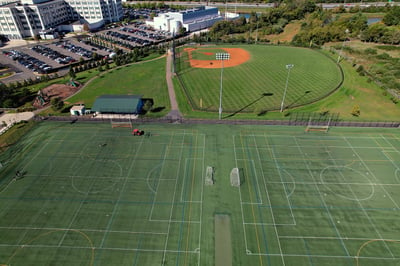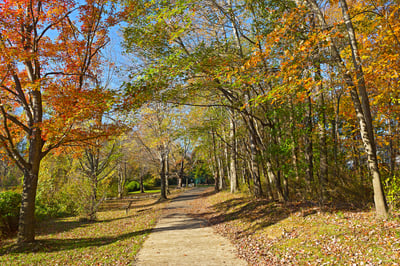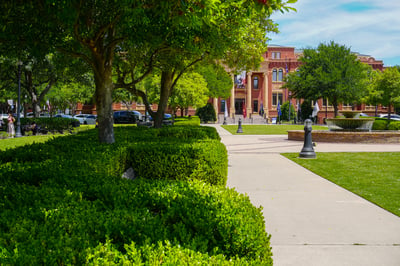The idea of a “sustainable landscape” can mean many different things to many different people, but at its most basic level, the term refers to the practice of minimizing the utilization of non-renewable and non-native plant materials. Following are a few ideas to consider if you’re seeking to make your commercial landscaping more sustainable.
Landscapes Offer Many Benefits
Plants are essential for commercial landscaping, especially in urban areas. This includes not only trees but also small plants, bushes, flowering shrubs and grassy lawns. Trees and plants serve an important role in the protection of the environment as they absorb carbon dioxide and release oxygen. Additionally, trees provide shade and keep the property cooler during hot summers. Trees and plants also help with the prevention of erosion, minimize dust particles in the air, and filter water as it passes through the soil to the aquifer below.
Recycling and Composting
Recycling includes a practice identified as “grasscycling”—where you leave the grass clipping on the lawn after mowing, rather than bagging and removing them. The grass clippings decay quickly and, in result, release their nutrients be used again by the lawn. This practice reduces the need for additional fertilizers being used over the course of the year. In addition to grasscycling, you can implement a natural composting program in your mulching program by spreading a thin covering of bark over your planting beds and over tree roots.
Conserve Water
Most commercial properties will have an irrigation system to supplement their landscape’s watering needs. Any irrigation system, requires a continuous need for assessment in order to make sure that everything is functioning properly and that your sprinkler heads are distributing water equally throughout the property. With the help of a landscape management service professional, you can adjust the watering schedules to match the requirements of the plants and seasonal rainfall. Another important tool in conserving water is setting up a rainfall detection sensor. This will pause the irrigation system’s scheduled program when there is sufficient natural rainfall. Modern smart control systems make sure to water the plants only when it’s necessary, and will automatically adjust clocks and controllers based on recorded rainfall data. These systems can even be monitored and accessed remotely via smartphone apps.
Use Fertilizers and Pest Control Products Carefully
It is important to use only the most suitable products, in the right proportion, and at the right time of the year. Whenever you choose fertilizers and pest management products, always make sure to read and follow the instructions provided on the label. Apply only the recommended amount of fertilizer or pest management product. Applying in a larger than recommended amount will not result in a faster or more improved outcome. Makes sure you and your landscape service provider understand the impact of the products being used on the natural environment.
Protect the Waterfront from Plant Debris and Runoff
Fallen leaves, grass clippings, and fertilizers contain nutrients which can be beneficial to your grounds and landscaped spaces, but they may cause harm to water streams and ponds. After servicing your property, and especially after a spray application service, always make sure to clean paved surfaces and sweep the material back into your landscape and help protect the waterfront.
Yellowstone Landscape provides quality landscape care and maintenance for Southern landscapes from many locations across the region. Interested in having us take a look at your property’s landscape? You can connect with our team anytime.





